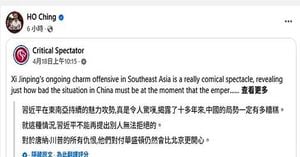Mykhailo Mudryk, Chelsea’s promising winger, finds himself in the midst of a significant controversy following a failed doping test that has left him suspended and awaiting further developments. The 23-year-old Ukrainian international tested positive for meldonium while on international duty in November 2024, prompting a provisional suspension by the Football Association (FA) and raising serious questions about his future in football.
Since the initial test, which came as a shock to Mudryk, there has been a notable lack of information regarding the subsequent B-sample results, which are crucial in determining the outcome of this case. Almost six months have passed since the adverse finding, and the uncertainty surrounding the timeline and processes involved has left both Mudryk and his supporters frustrated.
In an exclusive interview with GiveMeSport, Sergei Palkin, the chief executive of Shakhtar Donetsk, the club from which Chelsea acquired Mudryk for a staggering £89 million in January 2023, provided insight into the player’s current state of mind. “I have spoken to Mudryk many times since this doping issue arose. He doesn’t understand how it could have happened. He has no clue. No idea at all,” Palkin stated.
To bolster his defense, Mudryk’s lawyers arranged for him to take a lie detector test, which he reportedly passed. Palkin emphasized that this test will form part of the evidence showing that Mudryk did not intentionally do anything wrong. “Mudryk has been clear, it’s not his fault that he tested positive. We now need to find out how this has happened, and who did this. His lawyers are trying to find out,” he added.
The absence of results from the B-sample remains a significant hurdle in Mudryk’s case. Without these results, he cannot be formally charged by the FA or other footballing authorities. Palkin questioned the delay, stating, “There are still no results from the B-sample, so that remains open. Nobody knows what’s happened.” This ongoing limbo is not only troubling for Mudryk but also for Shakhtar, which has a vested financial interest in the player’s performance.
Shakhtar Donetsk stands to lose approximately €30 million if Mudryk is unable to return to the pitch, as bonuses tied to his transfer are contingent on his playing time and performance. Palkin noted, “Shakhtar also has a vested interest. If he’s not playing, it causes problems for us because we could potentially lose €30 million. So Shakhtar, Chelsea, and Mudryk, we are in one boat. We all support Mudryk, and hope he is allowed to continue playing football soon.”
Mudryk’s last appearance for Chelsea came during a Conference League match against Heidenheim on November 28, 2024, where he scored in a 2-0 victory. Since then, he has been absent from the team and has largely disappeared from public view, a situation that has undoubtedly added to the pressure he faces as he navigates this challenging period.
In a statement, Mudryk expressed his shock at the doping findings, insisting, “I can confirm that I have been notified that a sample I provided to the FA contained a banned substance. This has come as a complete shock as I have never knowingly used any banned substances or broken any rules, and am working closely with my team to investigate how this could have happened. I know that I have not done anything wrong and remain hopeful that I will be back on the pitch soon.”
While the situation is dire, it is crucial to understand the implications of a doping violation in football. Performance-enhancing drugs, such as meldonium, carry severe penalties, including potential bans of up to four years. The FA adheres to the UK Anti-Doping code, which aligns with the World Anti-Doping Agency (WADA) regulations. If Mudryk's B-sample also tests positive, he could face significant disciplinary action, similar to the case of Paul Pogba, who was suspended for four years before his ban was reduced on appeal.
As the football community awaits the outcome of Mudryk’s case, the implications extend beyond the player himself. The financial ramifications for both Chelsea and Shakhtar are substantial, especially considering the ongoing conflict in Ukraine and its impact on the club's finances. Rinat Akhmetov, the owner of Shakhtar, has been actively involved in supporting Ukraine during the war, having donated over €315 million since the conflict began in 2022. The sale of Mudryk was crucial for the club, with Palkin noting, “Selling Mudryk to Chelsea was a crucial deal for us. Without the Mudryk fee, I don’t understand how we would have settled many, many, many issues.”
As the saga continues, Mudryk remains hopeful that he will be cleared of any wrongdoing and can return to the pitch. The lack of clarity surrounding the B-sample results has left him and his supporters in a state of uncertainty, but the backing from his former club and the football community suggests that he is not alone in this battle. As Palkin aptly puts it, “I wish Mudryk all the best. He’s a top professional and a very good person. He should be protected.”
In conclusion, the situation surrounding Mykhailo Mudryk serves as a stark reminder of the pressures athletes face in the modern game, especially when it comes to issues of doping and integrity. With both personal and professional stakes at play, the football world watches closely as this story unfolds, eager for a resolution that will hopefully see Mudryk return to the sport he loves.








